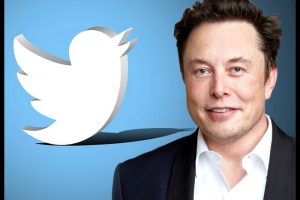Musk Attributes Twitter Cost Cuts To $3 Bln Negative Cash Flow

Twitter CEO Elon Musk has defended the financial transactions of the company under his leadership, saying that the social media platform would have had a “negative cash flow of $3 billion a year”, if he had not taken his controversial cost-cutting efforts.
Elon Musk, who bought the social networking company for $44 billion in October gave a low down of its bad financial situation during a Twitter Spaces online forum on Wednesday.
Musk said, “We have an emergency fire drill on our hands?.?.?.?This company is like you’re in a plane that is headed towards the ground and high speed with the engines on fire and the controls don’t work. That’s the reason for my actions that may seem sometimes spurious.”
He said that the platform had been on course to spend about $5 billion in 2023. Overall costs at Twitter in 2021, the last annual period that the company reported before being taken private, were $5.6 billion, during which time it made a net loss of $221 million.
Looking ahead, Musk said that Twitter’s net cash outflow, “if you didn’t make any changes, would be about $6 billion to $6.5 billion next year. This is partly because the company has been loaded with $12.5 billion of debt to help to fund his acquisition, which required about $1.5 billion a year in annual debt servicing payments amid rising interest rates.
Looking at Musk’s comments, one gets the feeling that the company was on track to make about $3 billion in annual revenues next year. That would suggest Twitter was on course for revenues as much as $2 billion lower in 2023 than the $5 billion it achieved in 2021, which mainly came from advertising. Many marketers have pulled out of the platform since Musk’s takeover because of moderation concerns.
The real situation of Twitter’s finances became clear after Musk fired about half of its 7,500-strong workforce and stopped employees’ benefits, prompting concerns about whether the company is sufficiently staffed in areas such as content moderation and compliance.
“With the changes we are making here on massively reducing the burn rate, and building subscriber revenue, I now think that Twitter will, in fact, be okay next year,” Musk said, adding that he had spoken to advertisers who were urging him to show how Twitter could provide a return on their investment.
Late on Tuesday, Musk said he would resign as Twitter’s chief as soon as he had found someone “foolish enough to take the job,” bowing to the result of a poll of the platform’s users he conducted at the weekend.
Source: Read Full Article
